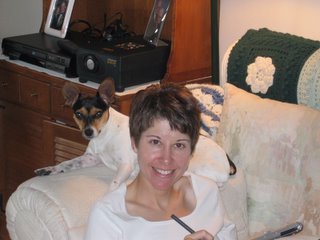Status: Crazy! Did I finish the manuscript last night? Nope. I stayed up late but my eyes were cross-eyed after 11 p.m. I have another 50 pages I plan to finish this morning, write up my comments, and shoot to my author. Then I only have two more client fulls and a partial in the queue!
Agent Janet Reid got her tag and has come out to play. Be sure to check out her answers on her blog, which she does have (news to me but very fun nonetheless).
Lately, I’ve had to send a lot of query reply emails that say, “Thank you very much for your query, but the Nelson Agency does not represent screenplays.”
That’s clearly listed on my website so I’m not certain why all the screenplay queries. Then it occurred to me that writers just don’t get that whole book-to-film thing.
To be clear, I don’t represent screenplays, screenwriters, or anything to do with Hollywood. I’m a literary agent. I represent authors, and I sell the print rights to their books—mainly to the big New York Publishers.
However, after I sell a book, then I pursue subsidiary rights for the print property. That means selling translation rights (if the publisher doesn’t have World rights), audio (if that wasn’t part of the deal), etc., and I always keep dramatic or tv/film rights because I have strong partnerships with Hollywood co-agents to place those rights.
There is no screenplay or screenwriter involved. All that is being done is selling the dramatic subsidiary rights to the already sold print project. Book to Film.
It’s up to the studio (or the producer) to “package” the project by hiring the director, the screenwriter (unless the author has a history of screenwriting, most studios prefer to hire their own talent here), the producer and all other components to make it possible for the project to move beyond the option, be purchased, and made into a film.
Now often times the studios will call or email me directly about a BOOK I just recently sold, but I don’t really “know” them. I wouldn’t have the faintest idea of where or to whom to send a screenplay.
And, please don’t query me about a book you’ve sold yourself and now want someone to handle just the dramatic rights. I only handle the subsidiary rights for my clients’ projects– projects for which I have sold the primary print rights to a US publisher.
You know I’ve ranted about Hollywood before. It’s such a long shot period that I don’t have time to take on projects just to sell the dramatic rights since any sale to Hollywood, even for my own clients, is unlikely. There wouldn’t be much return on my time investment to take on non-clients for this. Nor would I want to. I’m a literary agent—not a film agent.
Rant done. Maybe that’ll help reduce the number of those queries. Do you think? Nah, I don’t believe it either. Worth a shot though.

